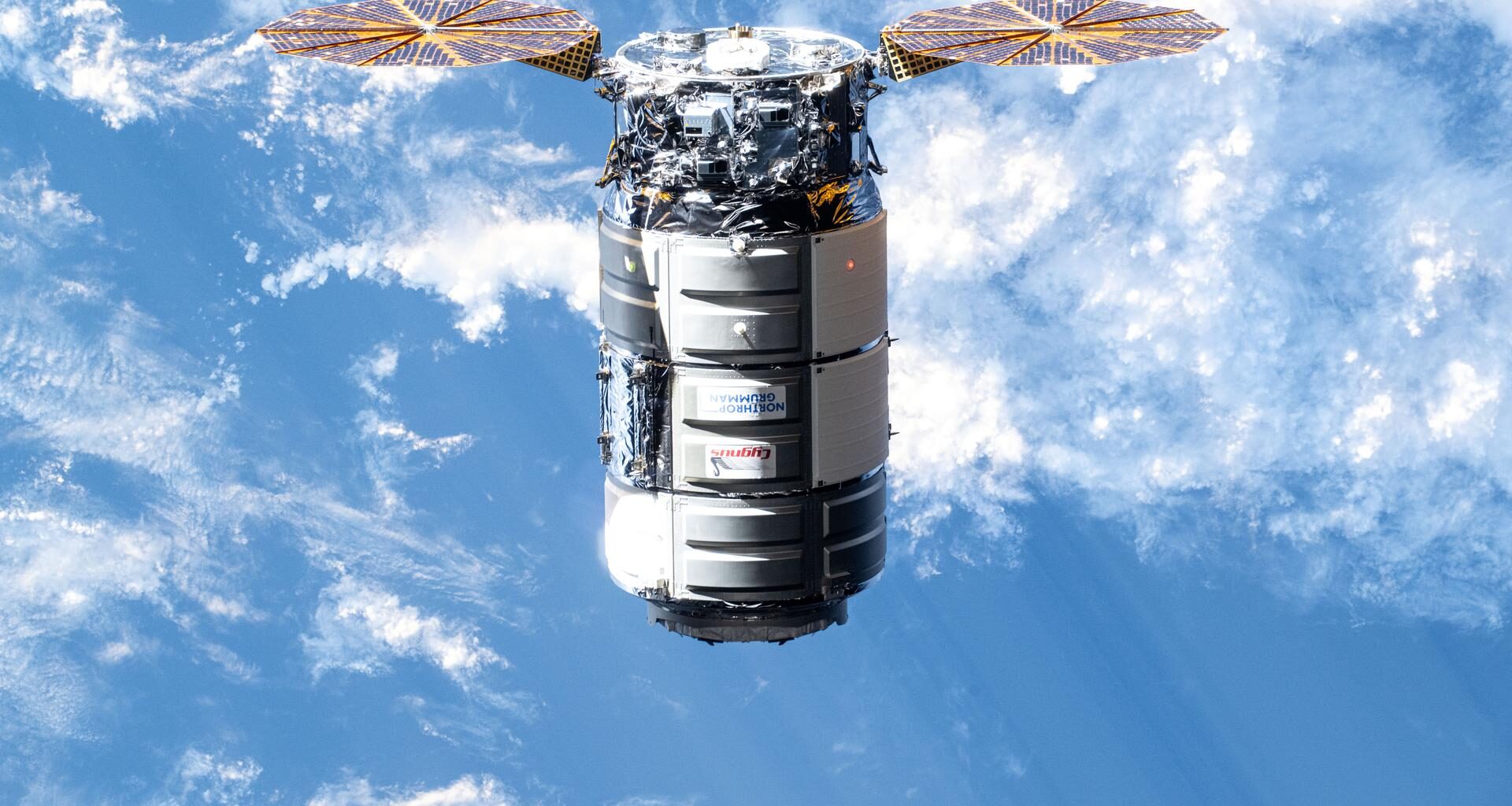PARIS — NASA is delaying the arrival of a Cygnus spacecraft at the International Space Station to investigate a thruster problem with the cargo vehicle.
NASA announced late Sept. 16 that the NG-23 Cygnus would not arrive at the vicinity of the station early Sept. 17, as originally scheduled, after the spacecraft’s main engine shut down prematurely during two burns earlier in the day designed to raise its orbit.
Neither the agency nor Northrop Grumman, which operates Cygnus, provided additional details about the issue. NASA noted that all other systems on the cargo spacecraft were working as expected.
Cygnus launched on a SpaceX Falcon 9 Sept. 14 with about 5,000 kilograms of cargo on board. The mission profile called for a 60-hour transit by Cygnus to the ISS, where the station’s robotic arm would then grapple the spacecraft and berth it to the Unity module.
This is the first flight of a larger version of Cygnus, called Cygnus XL, with a longer pressurized cargo module that can accommodate 33% more payload than the previous version. Northrop didn’t note any changes to the spacecraft’s service module, which includes the main thruster as well as power and other subsystems.
This is not the first Cygnus mission with thruster problems. On the previous Cygnus mission, NG-21 launched in August 2024, the spacecraft failed to perform an initial orbit-raising burn after launch because of what NASA described as a “a late entry to burn sequencing” problem, followed by a slightly low pressures in the main thruster. The problem, though, did not delay the spacecraft’s arrival at the ISS.
Related
Jeff Foust writes about space policy, commercial space, and related topics for SpaceNews.
He earned a Ph.D. in planetary sciences from the Massachusetts Institute of Technology and a bachelor’s degree with honors in geophysics and planetary science…
More by Jeff Foust

